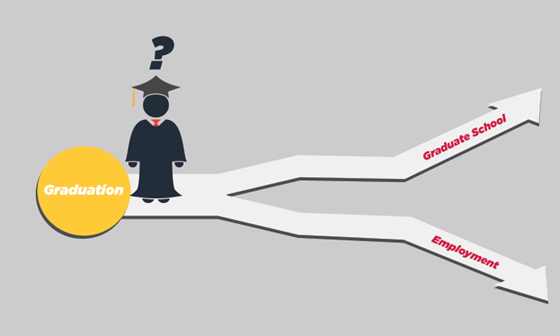Why Attend Graduate School

As mentioned on the previous page, there are a number of good reasons to attend grad school and additional education usually has a positive impact on a career. It is important to understand how the type of degree and area of specialization may affect employment options. Generally speaking, a master’s degree will increase employment opportunities because some employers are looking specifically for master’s level candidates, and many will consider candidates with either a master’s or bachelor’s degree to fill entry-level positions. A PhD will increase employment opportunities in academia and research labs/firms but may limit opportunities in industry because there are fewer research position than there are applied-engineering positions. When engineering employers see a doctorate degree on a resume, they usually view the individual as someone that wants to conduct research since considerable time and money has been invested in learning to conduct research. Employers generally do not view individuals with a PhD as a good match for a position doing applied engineering work.
When seeking employment, it is important to understand that professional networking is very important throughout the entire employment process; the more specialized you are, the more important it is. While conducting your graduate work, you should work to identify and connect with employers that may have an interest in your specialized knowledge and skills. Your professors can be very helpful in connecting you with individuals in their professional networks and you should pursue other opportunities to engage with employers that visit campus for career fairs and information sessions Review Step 6 of the Student Guide to Employment for more information on networking. Attending and presenting research results at technical meetings and conferences is also an effective networking tactic.
When to Pursue an Advanced Degree
When pursuing a technical degree, such as engineering, the general rule is to start your advanced degree before you forget too much of your calculus and science knowledge. It is usually best to begin within two years of receiving your undergraduate degree, but many individuals have not followed this advice and been successful. As mentioned previously, 13% of College of Engineering BS graduates enter a graduate program immediately after receiving their undergraduate degree.
An unknown number of alumni pursue advanced degrees after working for a period of time. Many employers offer tuition reimbursement to encourage continuous learning, and it is fairly easy to obtain a master’s degree while also working full time. Distance education courses make this possible without proximity to a university campus. A PhD almost always requires proximity to a university since it involves conducting research using sophisticated equipment that is only available in departmental labs and teaching a course is sometimes involved.
